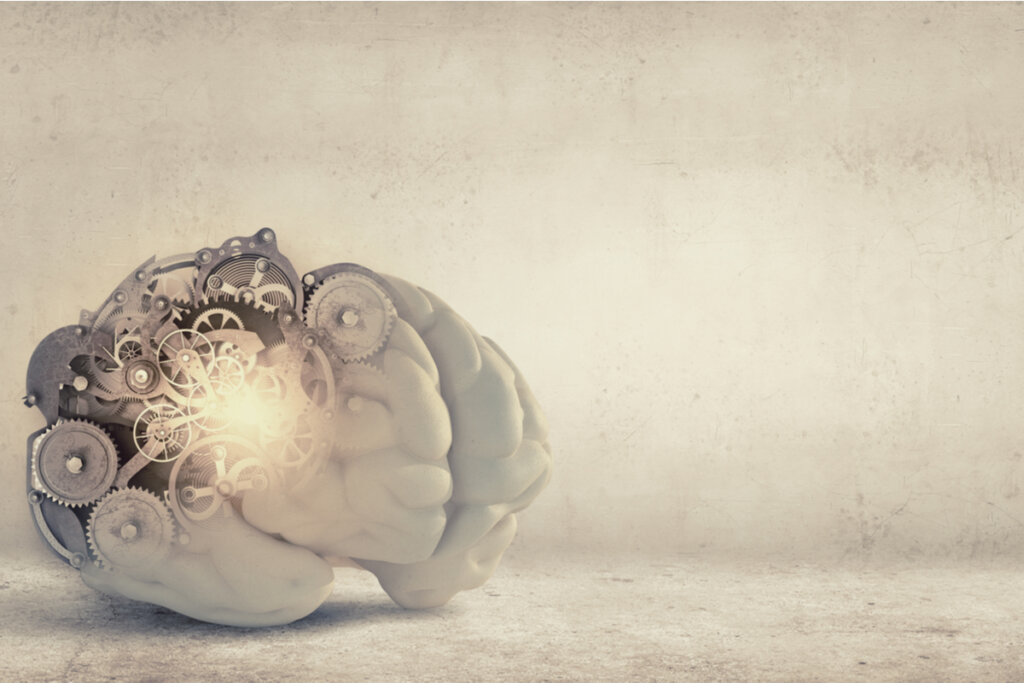Multitasking with Digital Media May Disrupt Memory

A recent study has once again put its “finger on the pulse” with regard to multitasking with digital media. While it’s not entirely conclusive research, it does present an insight into the effect of looking at multiple screens at the same time. In fact, the study suggested that this action impairs memory.
The research was conducted by a team of scientists led by Dr. Kevin Madore. It was published in the journal Nature. Broadly speaking, it involved an experiment conducted with young adults. The study offered strong evidence that multitasking with digital media affects cognitive performance.
” Any man who can drive safely while kissing a pretty girl is not giving the kiss the attention it deserves.”
-Albert Einstein-
For a long time, there’s been talk of memory impairments caused by multitasking with digital media. However, now there exists solid evidence to prove it. Nevertheless, the researchers have been cautious in this respect. Consequently, they suggest the need for further studies to corroborate their conclusions.

Multitasking with digital media
What the team of researchers did was to recruit a group of 80 volunteers between the ages of 18 and 26. The goal was to find out if multitasking with digital media affected their cognitive performance.
Before continuing, let’s clarify something. Multitasking with digital media refers to situations where a person is interacting with several screen devices at the same time. For example, they might be watching television while chatting online with someone, and also looking at social media.
To study the issue, the scientists put the 80 young people in a situation that demanded both attention and memory. In fact, they were presented with a group of objects on a computer screen and asked to classify them according to different variables such as size or liking.
After doing several rounds, everyone was given a ten-minute break. Then, they were presented with a new group of objects. They had to answer if they’d already seen them in the previous rounds, or if it was the first time they’d been presented with them.
The results of the study
During the experiment, the volunteers were monitored by electroencephalography. Thanks to this technique, it was possible to monitor both neuronal activity and the diameter of their pupils. This made it possible to detect the activity of both attention and memory. For example, a reduction in the diameter of a pupil is a sign of poor attention.
In the end, all the participants answered a questionnaire. The responses made it possible to quantify the level of attention of the volunteers, as well as the tendency for their attention to wander. In addition, the researchers noted the participants’ tendency to multitask with digital media in their daily lives. This information was cross-referenced with that obtained in the previous stage.
The results showed that those who multitasked the most with digital media were also more likely to experience dispersed attention. Likewise, it was evidenced that the participants were more prone to forgetting in the face of the first round of images. Furthermore, their brain patterns showed a reduction in episodic memory. In other words, the memory that’s related to specific events.

A topic for further investigation
The observations of the study concluded that there’s a clear relationship between difficulty in maintaining attention, multitasking with digital media, and poor memory performance. In other words, those who are easily distracted and multitask with their devices also have less ability to remember.
Nevertheless, this research doesn’t permit us to conclude that multitasking with digital media is what causes problems with attention and memory. In fact, it could be the opposite. For example, people who experience difficulties in attention and memory might be more likely to multitask with digital media. Therefore, further studies are still required to reach a definitive conclusion in this regard.
Meanwhile, many experts point out that the human brain isn’t designed to be attending to several things at the same time. For this reason, it wouldn’t be uncommon to find that multitasking is, indeed, a factor that impairs intellectual abilities.
Bearing this in mind, it’s extremely important that there be greater awareness of the use of new technologies. Above all, there should be moderation in the way that they’re managed.
A recent study has once again put its “finger on the pulse” with regard to multitasking with digital media. While it’s not entirely conclusive research, it does present an insight into the effect of looking at multiple screens at the same time. In fact, the study suggested that this action impairs memory.
The research was conducted by a team of scientists led by Dr. Kevin Madore. It was published in the journal Nature. Broadly speaking, it involved an experiment conducted with young adults. The study offered strong evidence that multitasking with digital media affects cognitive performance.
” Any man who can drive safely while kissing a pretty girl is not giving the kiss the attention it deserves.”
-Albert Einstein-
For a long time, there’s been talk of memory impairments caused by multitasking with digital media. However, now there exists solid evidence to prove it. Nevertheless, the researchers have been cautious in this respect. Consequently, they suggest the need for further studies to corroborate their conclusions.

Multitasking with digital media
What the team of researchers did was to recruit a group of 80 volunteers between the ages of 18 and 26. The goal was to find out if multitasking with digital media affected their cognitive performance.
Before continuing, let’s clarify something. Multitasking with digital media refers to situations where a person is interacting with several screen devices at the same time. For example, they might be watching television while chatting online with someone, and also looking at social media.
To study the issue, the scientists put the 80 young people in a situation that demanded both attention and memory. In fact, they were presented with a group of objects on a computer screen and asked to classify them according to different variables such as size or liking.
After doing several rounds, everyone was given a ten-minute break. Then, they were presented with a new group of objects. They had to answer if they’d already seen them in the previous rounds, or if it was the first time they’d been presented with them.
The results of the study
During the experiment, the volunteers were monitored by electroencephalography. Thanks to this technique, it was possible to monitor both neuronal activity and the diameter of their pupils. This made it possible to detect the activity of both attention and memory. For example, a reduction in the diameter of a pupil is a sign of poor attention.
In the end, all the participants answered a questionnaire. The responses made it possible to quantify the level of attention of the volunteers, as well as the tendency for their attention to wander. In addition, the researchers noted the participants’ tendency to multitask with digital media in their daily lives. This information was cross-referenced with that obtained in the previous stage.
The results showed that those who multitasked the most with digital media were also more likely to experience dispersed attention. Likewise, it was evidenced that the participants were more prone to forgetting in the face of the first round of images. Furthermore, their brain patterns showed a reduction in episodic memory. In other words, the memory that’s related to specific events.

A topic for further investigation
The observations of the study concluded that there’s a clear relationship between difficulty in maintaining attention, multitasking with digital media, and poor memory performance. In other words, those who are easily distracted and multitask with their devices also have less ability to remember.
Nevertheless, this research doesn’t permit us to conclude that multitasking with digital media is what causes problems with attention and memory. In fact, it could be the opposite. For example, people who experience difficulties in attention and memory might be more likely to multitask with digital media. Therefore, further studies are still required to reach a definitive conclusion in this regard.
Meanwhile, many experts point out that the human brain isn’t designed to be attending to several things at the same time. For this reason, it wouldn’t be uncommon to find that multitasking is, indeed, a factor that impairs intellectual abilities.
Bearing this in mind, it’s extremely important that there be greater awareness of the use of new technologies. Above all, there should be moderation in the way that they’re managed.
All cited sources were thoroughly reviewed by our team to ensure their quality, reliability, currency, and validity. The bibliography of this article was considered reliable and of academic or scientific accuracy.
- Alonso, G. T., & Raigada, J. L. P. (2014). Multitarea, Multipantalla y Práctica social del consumo de Medios entre los jóvenes de 16 a 29 años en España. María José Arrojo Baliña, 93.
This text is provided for informational purposes only and does not replace consultation with a professional. If in doubt, consult your specialist.







